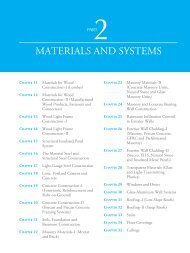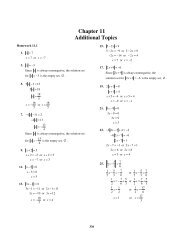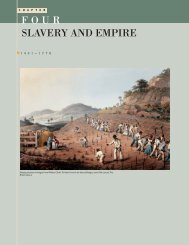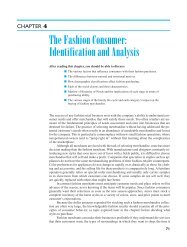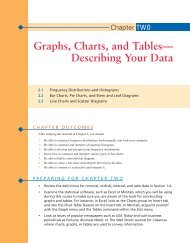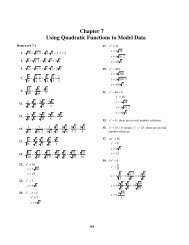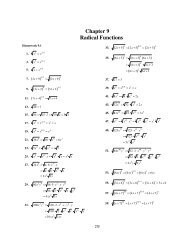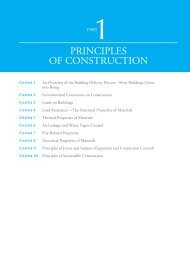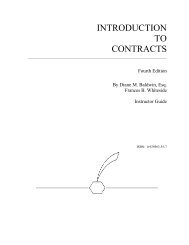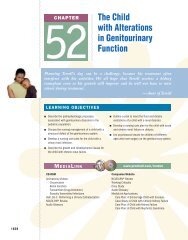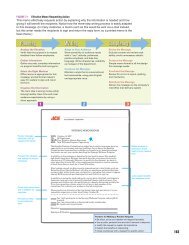audit reports
audit reports
audit reports
Create successful ePaper yourself
Turn your PDF publications into a flip-book with our unique Google optimized e-Paper software.
When an <strong>audit</strong>or issues a qualified report, he or she must use the term except for in<br />
the opinion paragraph. The implication is that the <strong>audit</strong>or is satisfied that the overall<br />
financial statements are correctly stated “except for” a specific aspect of them. Examples<br />
of this qualification are given later in this chapter. It is unacceptable to use the phrase<br />
except for with any other type of <strong>audit</strong> opinion.<br />
Adverse Opinion<br />
Disclaimer of Opinion<br />
An adverse opinion is used only when the <strong>audit</strong>or believes that the overall financial<br />
statements are so materially misstated or misleading that they do not present fairly the<br />
financial position or results of operations and cash flows in conformity with GAAP.<br />
The adverse opinion report can arise only when the <strong>audit</strong>or has knowledge, after an<br />
adequate investigation, of the absence of conformity. This is uncommon and thus the<br />
adverse opinion is rarely used.<br />
A disclaimer of opinion is issued when the <strong>audit</strong>or has been unable to satisfy himself or<br />
herself that the overall financial statements are fairly presented. The necessity for disclaiming<br />
an opinion may arise because of a severe limitation on the scope of the <strong>audit</strong> or<br />
a nonindependent relationship under the Code of Professional Conduct between the<br />
<strong>audit</strong>or and the client. Either of these situations prevents the <strong>audit</strong>or from expressing<br />
an opinion on the financial statements as a whole. The <strong>audit</strong>or also has the option to<br />
issue a disclaimer of opinion for a going concern problem.<br />
The disclaimer is distinguished from an adverse opinion in that it can arise only<br />
from a lack of knowledge by the <strong>audit</strong>or, whereas to express an adverse opinion,<br />
the <strong>audit</strong>or must have knowledge that the financial statements are not fairly stated. Both<br />
disclaimers and adverse opinions are used only when the condition is highly material.<br />
MATERIALITY<br />
OBJECTIVE 3-6<br />
Explain how materiality affects<br />
<strong>audit</strong> reporting decisions.<br />
Levels of Materiality<br />
Materiality is an essential consideration in determining the appropriate type of report<br />
for a given set of circumstances. For example, if a misstatement is immaterial relative to<br />
the financial statements of the entity for the current period, it is appropriate to issue an<br />
unqualified report. A common instance is the immediate expensing of office supplies<br />
rather than carrying the unused portion in inventory because the amount is insignificant.<br />
The situation is totally different when the amounts are of such significance that the<br />
financial statements are materially affected as a whole. In these circumstances, it is necessary<br />
to issue a disclaimer of opinion or an adverse opinion, depending on the nature<br />
of the misstatement. In situations of lesser materiality, a qualified opinion is appro -<br />
priate.<br />
The common definition of materiality as it applies to accounting and therefore to <strong>audit</strong><br />
reporting is as follows:<br />
A misstatement in the financial statements can be considered material if knowledge of the misstatement will<br />
affect a decision of a reasonable user of the statements.<br />
In applying this definition, three levels of materiality are used for determining the<br />
type of opinion to issue.<br />
Amounts Are Immaterial When a misstatement in the financial statements exists but is<br />
unlikely to affect the decisions of a reasonable user, it is considered to be immaterial.<br />
An unqualified opinion is therefore appropriate. For example, assume that management<br />
recorded prepaid insurance as an asset in the previous year and decides to<br />
expense it in the current year to reduce record-keeping costs. Management has failed to<br />
56 PART ONE / THE AUDITING PROFESSION



